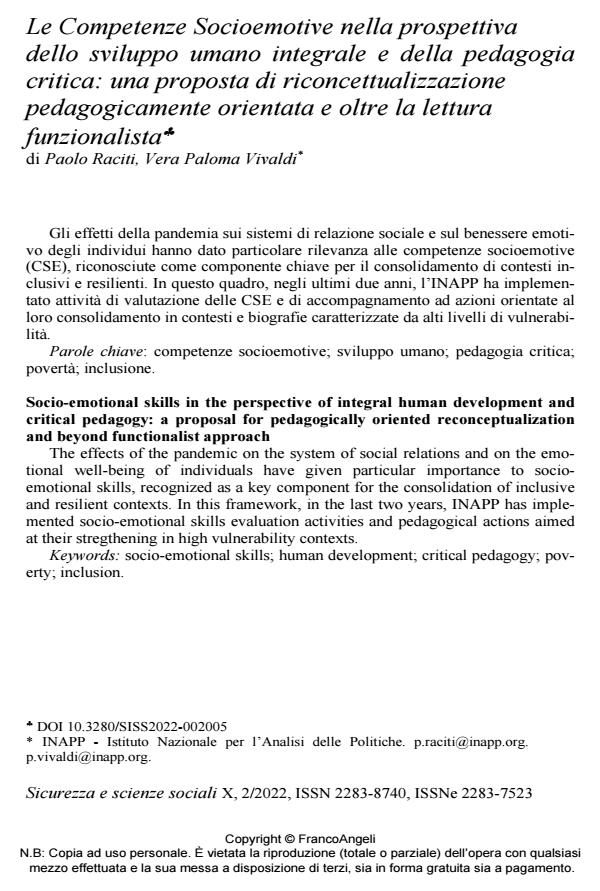Socio-emotional skills in the perspective of integral human development and critical pedagogy: a proposal for pedagogically oriented reconceptualization and beyond functionalist approach
Journal title SICUREZZA E SCIENZE SOCIALI
Author/s Paolo Raciti, Vera Paloma Vivaldi
Publishing Year 2022 Issue 2022/2
Language Italian Pages 17 P. 61-77 File size 257 KB
DOI 10.3280/SISS2022-002005
DOI is like a bar code for intellectual property: to have more infomation
click here
Below, you can see the article first page
If you want to buy this article in PDF format, you can do it, following the instructions to buy download credits

FrancoAngeli is member of Publishers International Linking Association, Inc (PILA), a not-for-profit association which run the CrossRef service enabling links to and from online scholarly content.
The effects of the pandemic on the system of social relations and on the emo-tional well-being of individuals have given particular importance to socio-emotional skills, recognized as a key component for the consolidation of inclusive and resilient contexts. In this framework, in the last two years, INAPP has imple-mented socio-emotional skills evaluation activities and pedagogical actions aimed at their stregthening in high vulnerability contexts.
Keywords: socio-emotional skills; human development; critical pedagogy; poverty; inclusion.
Paolo Raciti, Vera Paloma Vivaldi, Le Competenze Socioemotive nella prospettiva dello sviluppo umano integrale e della pedagogia critica: una proposta di riconcettualizzazione pedagogicamente orientata e oltre la lettura funzionalista in "SICUREZZA E SCIENZE SOCIALI" 2/2022, pp 61-77, DOI: 10.3280/SISS2022-002005